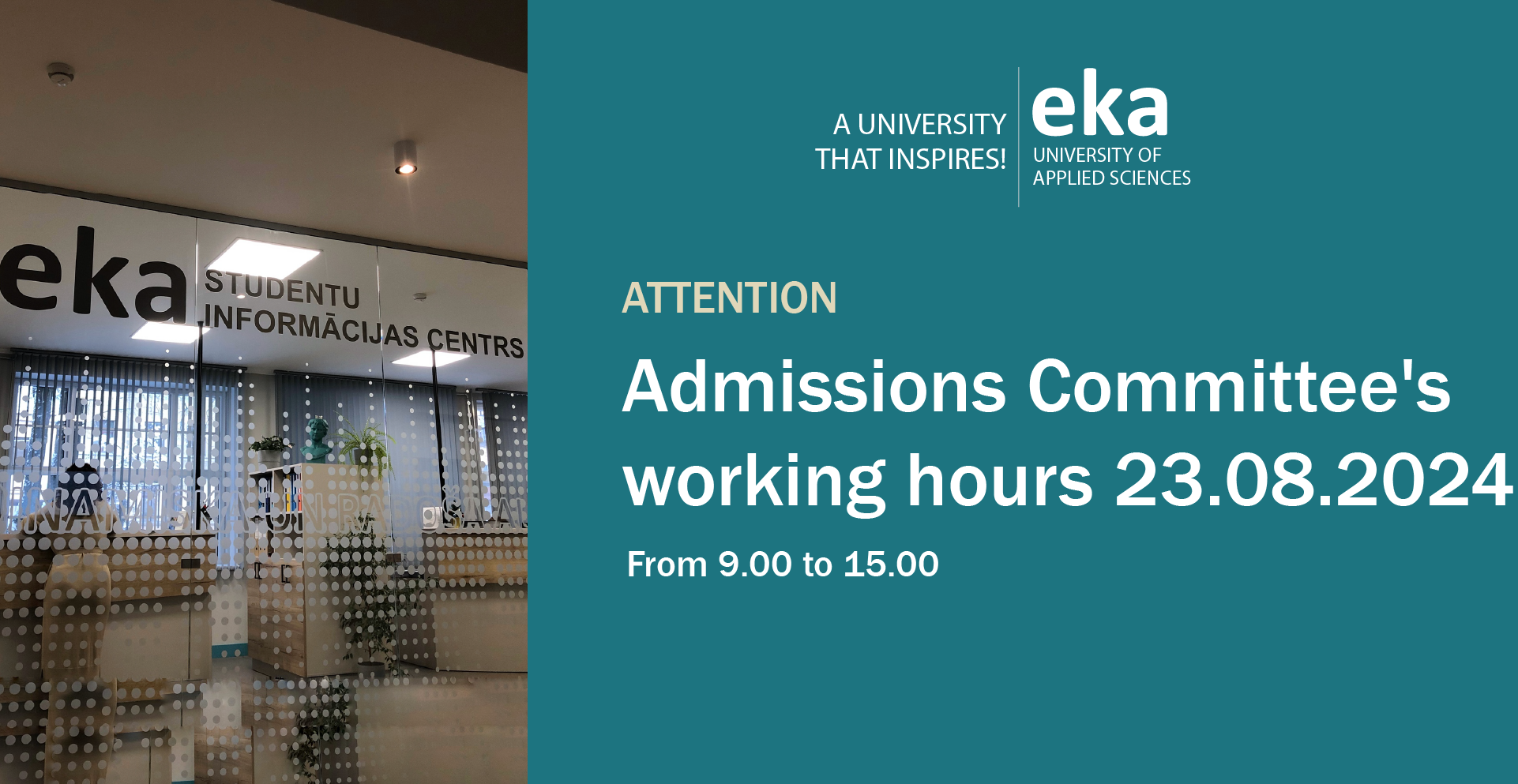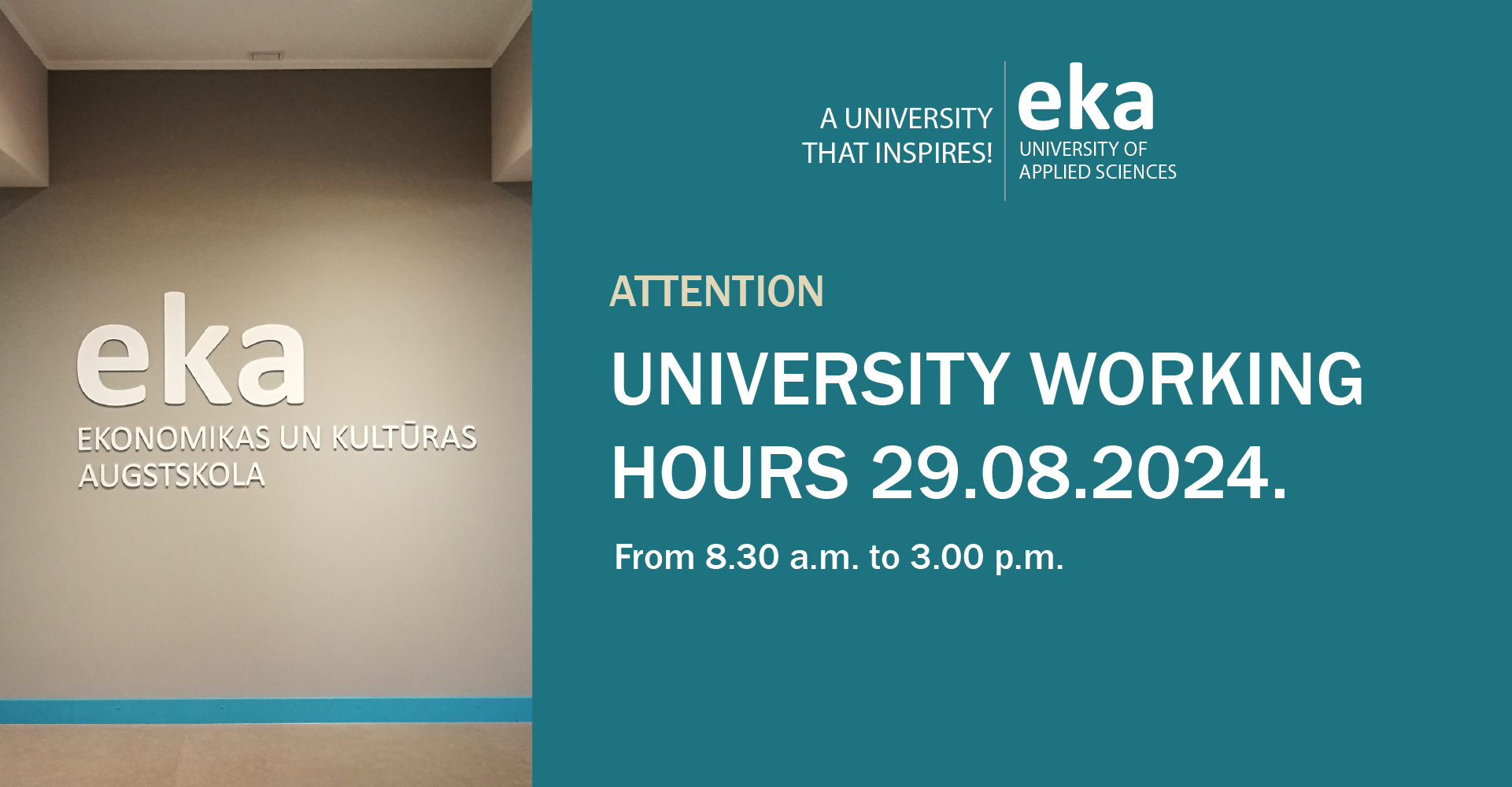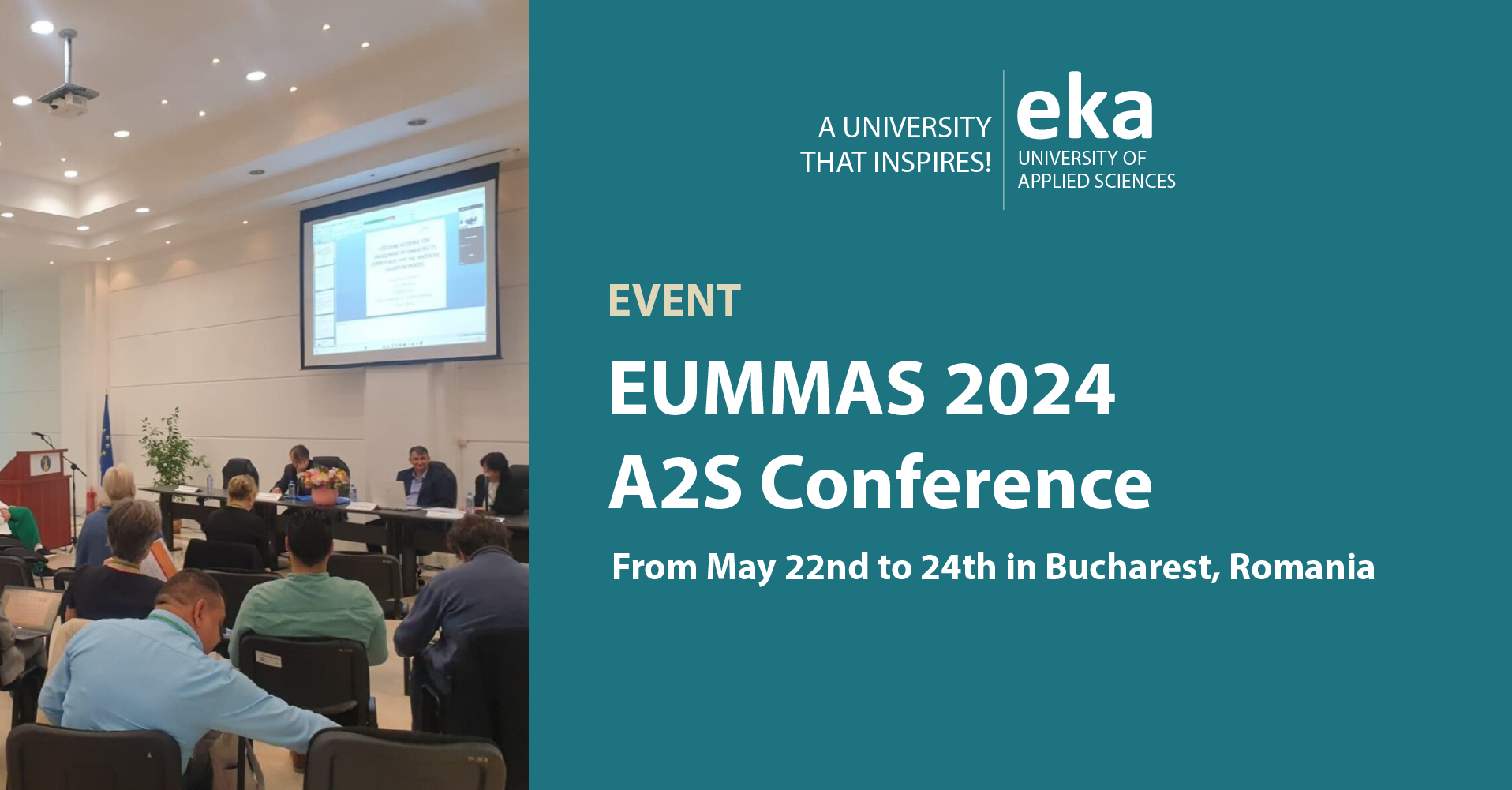
Bachelor level programme
MANAGEMENT
Degree to Be Achieved:
Social Sciences Bachelor Degree in Management and Administration
Accreditation:
study programme Management is accredited until August 26th, 2027.
Enrollment Criteria
- A general secondary education diploma;
- First level professional higher education for those entering the program at a later stage;
- English level B2 or International English language certificate:
TOEFL iBT – 72+
TOEFL PBT (paper-based test) - 513+
IELTS - 5.5 - 6.0
TOEIC – 605+
FCE (First Certificate in English) – 160+
CAE (Cambridge Certificate of Advanced English) – 160+
CPE (Cambridge Certificate of Proficiency in English) - 160+
Cambridge English: Business Vantage (BEC Vantage) – 160+
Pearson Test of English Academic (PTE A) – 59+
Cambridge English Linguaskill – 160+ Duolingo - 100+
Admission reguirements for foreign students are available HERE.
Study programme aims and objectives
Aims:
- to provide students with a set of knowledge, skills and competence in management according to the 6th level of the framework defined in the Latvian education classification;
- educate specialists in business management with analytical and systemic thinking, whose knowledge and skills enable managing companies or organizations.
Objectives:
- provide a study process that complies with the laws and requirements of the labour market, as well as student-centred approach in higher education;
- to promote qualification development of the teaching staff in educational and scientific fields;
- to provide and develop research activities in the study programme;
- to provide and develop infrastructure and facilities under the study programme implementation needs;
- to develop international collaboration with related higher education institutions, enterprises and organizations.
Programme Content
Compulsory courses
Management
Innovation Management
Project Management
Business economics and planning
Marketing
Business Law
Intellectual Property Law
Accounting
Theory of Finance
Tax Law
Microeconomics
Macroeconomics
Statistics
Management information systems
Research methods
Work, Environment and Civil Safety
Specialization courses (limited option)
Module „Marketing”
Customers’ Behavior
Brand Management
Digital Marketing
Marketing Planning
Sales Management
Logistics
Module „Human Resource Management”
Human Resource Management
Leadership
Dispute Management and Alternative Dispute Resolution
Cross cultural Communication
Communication Psychology
Module „International Economics”
International Economics
International Marketing and Trade
International Trade Law
Module “Humanitarian courses”
Philosophy
Sociology
Art of Public Speech and Presentation
Module “Foreign languages”
Professional Foreign Language I
Professional Foreign Language II
Learning outcomes of the study programme
Knowledge (knowledge and understanding):
- knows the concepts of management theory and patterns;
- understands the organization′s management principles and methods.
Skills (ability to apply knowledge, communication skills, general skills):
- is able to manage structural units or the organization′s activities;
- is able to reasonably discuss aspects of management;
- is capable of conducting research and interpreting the results of management processes within the organisation;
- is able to direct their own competence development in the field of management;
- is able to independently organise their work;
- is able to work in a team.
Competence (analysis, synthesis, evaluation):
- is able to acquire and analyse information using a variety of methods and ICT;
- is able to take decisions on the organization or its divisions’ activities using different types of information;
- is able to find solutions to the problems identified during the research or analysis of the organisation performance.
Standard period of studies
Full time studies (3 years)
Day
Working days, usually 09:00 - 15:50
Leading lecturers
Director of the Study Programme:
Assistant Professor, Mg.iur. Natalya Verina
Email: natalija.verina@inbox.lv
Leading lecturers:
Vita Brakovska – Member of the Board at “Knowledge and Innovation Society”
Madara Bruvere – State Tourism Development Agency (TAVA), Tourism Marketing Senior Expert,
Helma Jirgena - Director of Institute of Economics, the Latvian Academy of Sciences,
Anita Hāznere – Director of Quality and risk management department, BTA Insurance Company SE,
Inese Āboliņa - Baltic Miles, Riga International Airport, Business Development Manager,
Jolanta Dinsberga – judge at European Court of Arbitration, lawyer at law office EIF,
Ilze Lejiņa – Attorney at Law,
Velga Vēvere – leading specialist at the LU’s Institute of Philosophy and Sociology, Expert at Latvian Council of Science in humanitarian and social sciences.
Opportunities after graduating
Where to Work?
Graduates of the EKA University of Applied Sciences (EKA) are able to sustain the highest level of competition in labour markets in Latvia and the European Union. Our graduates successfully take manager positions in the sphere of finance, economics, accounting, solve analytical and management problems.
On completing the EKA study programmes, our students find a job in the sphere of manufacturing, in service and trade sectors, tourism companies, banks, insurance and auditing companies, state and municipal institutions, companies and organizations, joint enterprises, braches of foreign companies etc.
Where to Continue Studies/International Studies:
After graduating from the EKA students are able to continue studies at Master degree programmes in Latvia and other countries. That is possible due to international students exchange projects.
The EKA has concluded ERASMUS cooperation agreements with higher educational institutions in France, Italy, Lithuania, Poland, Macedonia, the Netherlands, Slovenia, Spain, Turkey, Germany, and Hungary. Every year list of the EKA University of Applied Sciences partners is expanded with new partners. Every year students and lecturers participate in exchange programmes.
The EKA University of Applied Sciences is a member of the Baltic University Programme that unites 160 universities in 14 countries of the Baltic Sea region.









